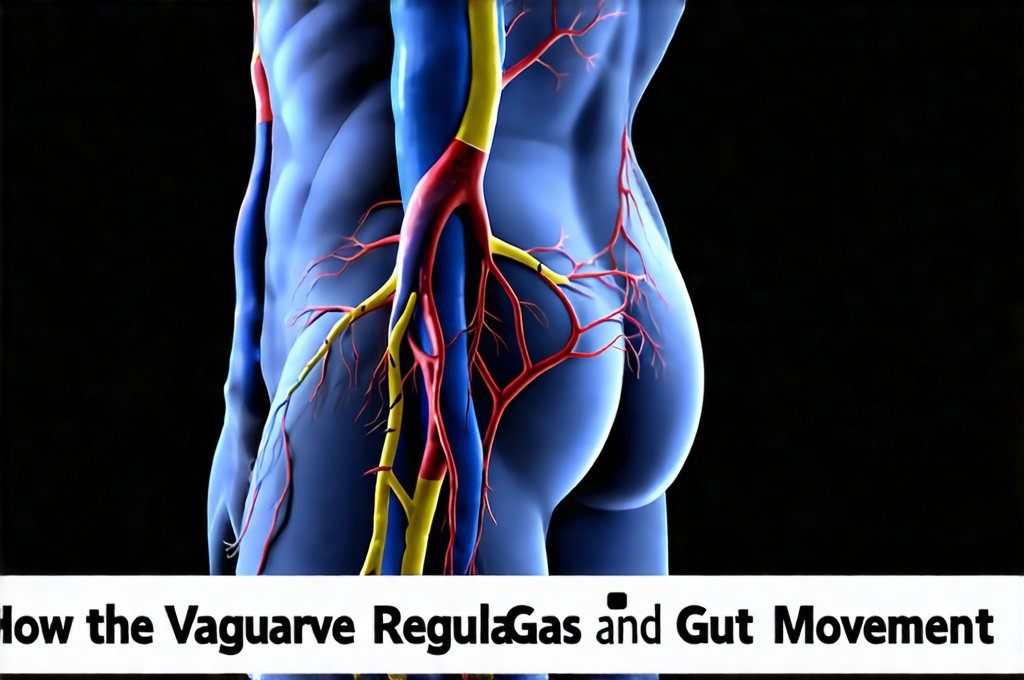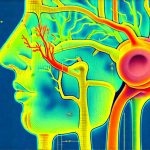The digestive system is often seen as a self-contained unit, churning away independently. However, it’s profoundly interconnected with the brain, forming a bidirectional communication highway that impacts everything from nutrient absorption to emotional wellbeing. At the heart of this connection lies the vagus nerve, sometimes called the “wandering nerve” due to its extensive reach throughout the body. It’s not merely a single nerve but rather a complex network responsible for influencing numerous bodily functions, and arguably, its role in gut motility – the rhythmic contractions that move food through our digestive tract – is one of its most significant contributions to overall health. Understanding how this nerve operates offers insights into conditions like bloating, constipation, diarrhea, and even broader gastrointestinal disorders.
This intricate neural pathway acts as a central regulator, constantly receiving information from the gut and relaying signals back to the brain. This constant feedback loop isn’t just about digestion; it’s also crucial for managing stress responses, regulating heart rate variability, and influencing our emotional state. A healthy vagus nerve contributes to efficient digestion, reduced inflammation, and a greater sense of calm, while a compromised vagal tone can contribute to digestive distress and exacerbate anxiety. The interplay between the brain and gut via the vagus nerve highlights the importance of holistic health approaches that consider both physical and mental wellbeing.
The Vagus Nerve’s Anatomy & Mechanisms in Gut Motility
The vagus nerve (cranial nerve X) is one of twelve cranial nerves, but it stands out due to its widespread influence. Unlike most cranial nerves which serve specific regions of the head and neck, the vagus nerve extends far beyond, impacting organs like the heart, lungs, stomach, intestines, and even influencing immune function. It’s not a single cable, but rather a collection of fibers with different functions. Importantly for gut regulation, it carries both afferent (sensory) signals from the gut to the brain, providing information about stretch, chemical composition, and microbial activity; and efferent (motor) signals from the brain to the gut, directing muscle contractions and gland secretions.
These efferent fibers are particularly important for regulating peristalsis – the wave-like muscular contractions that propel food along the digestive tract. The vagus nerve directly innervates muscles in the stomach and intestines, stimulating them to contract and move food forward. It also influences enteric nervous system (ENS), often called the “second brain,” which is a complex network of neurons within the gut wall itself. The vagus nerve doesn’t control the ENS entirely but modulates its activity, acting as a major upstream influence on gut movement. This modulation involves releasing neurotransmitters like acetylcholine, which stimulates muscle contractions and increases digestive secretions.
The strength or “tone” of the vagus nerve significantly impacts these functions. A higher vagal tone generally indicates better digestive efficiency, improved stress resilience, and stronger immune function. Conversely, low vagal tone can contribute to sluggish digestion, increased inflammation, and heightened anxiety. Factors like chronic stress, poor diet, lack of exercise, and traumatic experiences can all negatively impact vagal tone over time, contributing to a cascade of health issues.
How Gas Production Impacts Vagal Signaling
Gas in the digestive system isn’t always a sign of something wrong; it’s a natural byproduct of bacterial fermentation in the colon. However, excessive gas can significantly disrupt gut motility and trigger uncomfortable symptoms like bloating, abdominal pain, and altered bowel habits. The vagus nerve plays a key role in both sensing this distension (stretching) caused by gas and attempting to regulate it. As gas accumulates, it stretches the intestinal walls, activating mechanoreceptors that send afferent signals via the vagus nerve to the brain.
This signaling can have several effects. Firstly, it can trigger a slowing of gastric emptying – meaning food moves more slowly from the stomach into the intestines – which allows for further breakdown and potentially reduces fermentation in the colon. Secondly, it stimulates increased intestinal contractions (motility) aimed at moving gas along the digestive tract. However, in some individuals with conditions like Irritable Bowel Syndrome (IBS), this signaling can become dysfunctional. The brain may misinterpret these signals or respond inappropriately, leading to heightened sensitivity and altered motility patterns.
- A healthy vagus nerve will generally work to efficiently move gas through the system.
- In IBS or other digestive disorders, the signaling pathway can be disrupted.
- This disruption can lead to increased visceral hypersensitivity (heightened pain perception) and altered gut contractions. Understanding nerve sensitivity is key to understanding the discomfort.
The Role of Gut Microbiota & Vagal Communication
The trillions of microorganisms living in our gut – collectively known as the gut microbiota – are not passive bystanders in digestion. They play a crucial role in breaking down food, synthesizing vitamins, and modulating immune function. Importantly, they also profoundly influence vagal nerve activity. Certain bacterial species produce metabolites (byproducts) like short-chain fatty acids (SCFAs), which can directly stimulate the vagus nerve via receptors on intestinal cells.
These SCFAs not only improve gut barrier integrity but also have anti-inflammatory effects and can even impact brain function through the gut-brain axis. Conversely, an imbalance in the gut microbiota – known as dysbiosis – can lead to increased gas production (from undigested carbohydrates) and inflammation, both of which negatively affect vagal signaling. A dysbiotic microbiome may produce compounds that irritate the intestinal lining, triggering excessive afferent signals to the brain and contributing to symptoms like bloating and abdominal pain. Maintaining gut health is paramount.
- A diverse and balanced gut microbiota promotes healthy vagal tone.
- SCFAs produced by beneficial bacteria stimulate the vagus nerve.
- Dysbiosis can lead to increased gas production, inflammation, and impaired vagal signaling. Focusing on microbiome balance is critical.
Strategies for Vagal Nerve Stimulation & Gut Health
Given its central role in regulating gut motility, enhancing vagal tone can be a valuable approach for improving digestive health. Several strategies have been shown to stimulate the vagus nerve and potentially alleviate symptoms of bloating, constipation, and other gastrointestinal issues. These methods don’t “cure” conditions but aim to restore balance and improve the body’s natural regulatory mechanisms.
- Deep diaphragmatic breathing: Slow, deep breaths activate the vagus nerve by stimulating receptors in the diaphragm and lungs.
- Cold exposure: Brief exposure to cold temperatures (e.g., a cold shower or face immersion) can trigger vagal activation.
- Mindfulness & Meditation: Practices that reduce stress and promote relaxation have been shown to increase vagal tone.
- Singing, humming, and gargling: These activities engage the muscles in the throat which are innervated by the vagus nerve.
Beyond these direct stimulations, dietary changes can also support vagal health. Consuming a diet rich in fiber (to feed beneficial gut bacteria), fermented foods (probiotics to enhance microbial diversity), and omega-3 fatty acids (anti-inflammatory) can all contribute to a healthier gut microbiome and improved vagal signaling. Importantly, identifying and eliminating food sensitivities or intolerances can reduce inflammation and gas production, further easing the burden on the digestive system and supporting optimal vagal function. Spices can be incorporated carefully into a healthy diet. It’s crucial to remember that these strategies are best implemented as part of a holistic approach to health, addressing both physical and mental wellbeing for long-term benefits. Gentle movement can also aid in digestion. Finally, be mindful of overeating as it can impact the vagus nerve.


















